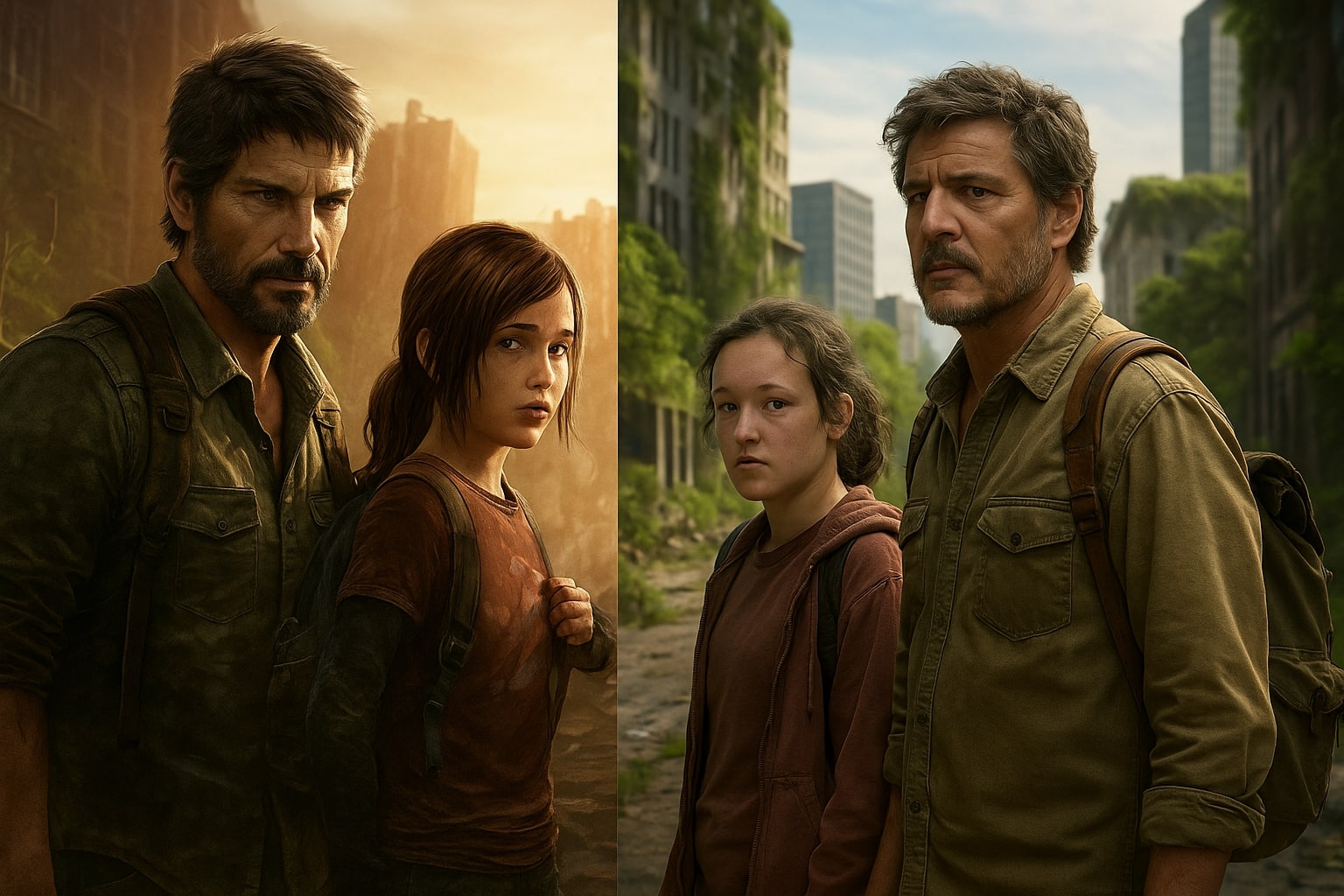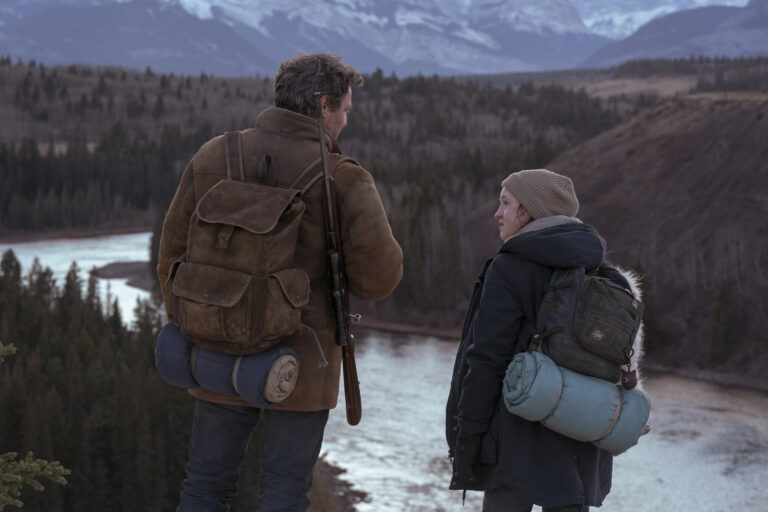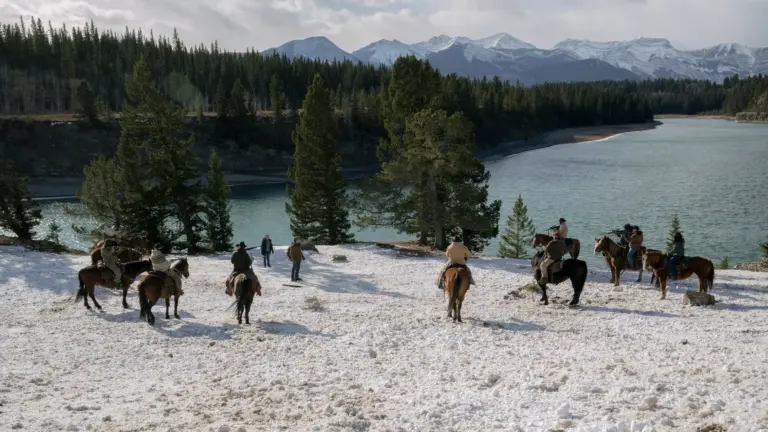When HBO first dropped the news they were adapting The Last of Us, the internet immediately split into two camps: cautious excitement and deep, deep fear. And honestly, who could blame anyone? We’ve seen enough video game adaptations fall flat on their faces — looking at you, Halo. But somehow, against all odds and past trauma, The Last of Us didn’t just succeed. It absolutely crushed it.

So, how exactly did this grim post-apocalyptic tale manage to hit the jackpot when so many others flopped?
Loyalty to the Source Material — And Then Some
First off, The Last of Us understood the assignment. Big time. Instead of “reimagining” the beloved story into something unrecognizable, the creators stayed laser-focused on what made the game unforgettable. That raw, gut-wrenching emotional core? It’s all there.
Neil Druckmann, the original game director and co-creator of the show, pointed out something critical: the adaptation showed “we could handle tremendous complexity in a narrative.” (source) And boy, did they. From Joel’s broken fatherly love to Ellie’s fierce loyalty, every nuance hit like a punch to the soul.
Meanwhile, shows like Halo decided to chart their own weird course. Instead of embracing the game’s deep lore, they stripped away key elements, alienating hardcore fans in the process. Not exactly a winning strategy.
Building on Strong Foundations
Here’s where The Last of Us truly flexed its muscles: it didn’t just recreate the game’s events. It expanded on them.
Characters like Bill and Frank, who barely had screen time in the game, got fully fleshed-out backstories that left viewers reaching for tissues. This extra depth wasn’t just filler. It amplified the emotional stakes and pulled casual viewers right into the game’s world without requiring them to ever pick up a controller.
Meanwhile, over at The Witcher camp, the Netflix series initially stayed true to Andrzej Sapkowski’s books and the game’s tone. But as seasons rolled on, things got messy. The storytelling wandered, and fans noticed.
The Last of Us proved that faithfulness plus smart expansion equals adaptation gold.
Prioritizing Heart Over Explosions
Too often, video game adaptations fall into a dangerous trap: “Let’s show lots of action, because video games are about action, right?” Wrong.
The Last of Us wisely flipped that script. Sure, there were clickers and gunfights and the occasional nasty bloater, but the true star was the characters’ emotional journey.
Here’s why it worked:
- Relatable themes: Love, loss, survival, and moral ambiguity — all deeply human.
- Complex characters: Joel and Ellie aren’t superheroes. They’re flawed, scared, and painfully real.
- Emotional storytelling: Every episode felt personal, like a diary cracked open for us to read.
On the flip side, Halo threw in fancy CGI battles but forgot to make us care about Master Chief as a person. And without heart, all the flashy effects in the world feel hollow.
Setting a High Score for the Future
The Last of Us didn’t just succeed; it redefined what we should expect from video game adaptations.
Before this show, “faithful adaptation” and “good TV” rarely shared the same sentence. Now, thanks to Druckmann and showrunner Craig Mazin, the bar’s sky-high. And it’s about time.
As Vanity Fair put it, the show demonstrated that “video games deserve to be treated with the same narrative respect as novels or films.” (source)
This new gold standard means future projects can’t just phone it in. They’ll need to treat source material with respect, cast carefully, and remember that at the end of the day, it’s the story that matters most.
A Quick Power-Up: What The Last of Us Taught Everyone
If you’re keeping score at home, here’s what made this adaptation a winner:
- Respect the source. No one wants a “loosely inspired” mess.
- Focus on character and heart. Ditch the mindless action when necessary.
- Expand smartly. Add depth, not noise.
- Trust your audience. They can handle complexity — and they’ll love you for it.
And That’s How You Level Up
In the end, The Last of Us didn’t just “succeed.” It rewrote the rulebook on adaptations.
It’s gritty, heart-wrenching, beautifully acted, and devastating in all the right ways. It’s proof that video games and prestige television aren’t strange bedfellows — they’re a match made in storytelling heaven when done right.
So next time someone announces another “game to screen” project, we can hope they’ll remember the lessons HBO taught us here. Stay faithful. Go deep. Respect the journey. And for the love of all things infected, don’t mess it up.
Here’s hoping the industry keeps pressing “continue” on this winning formula.




